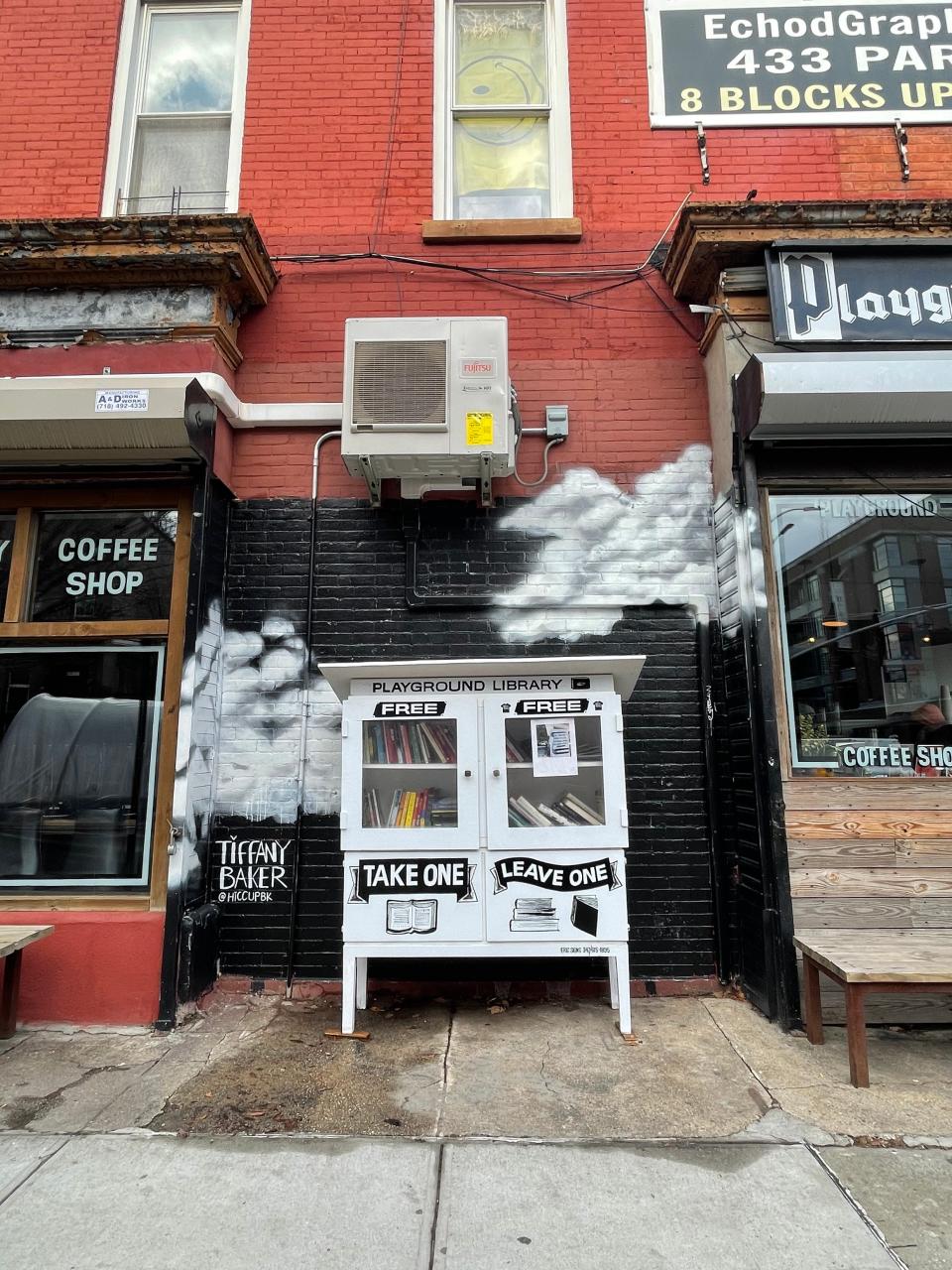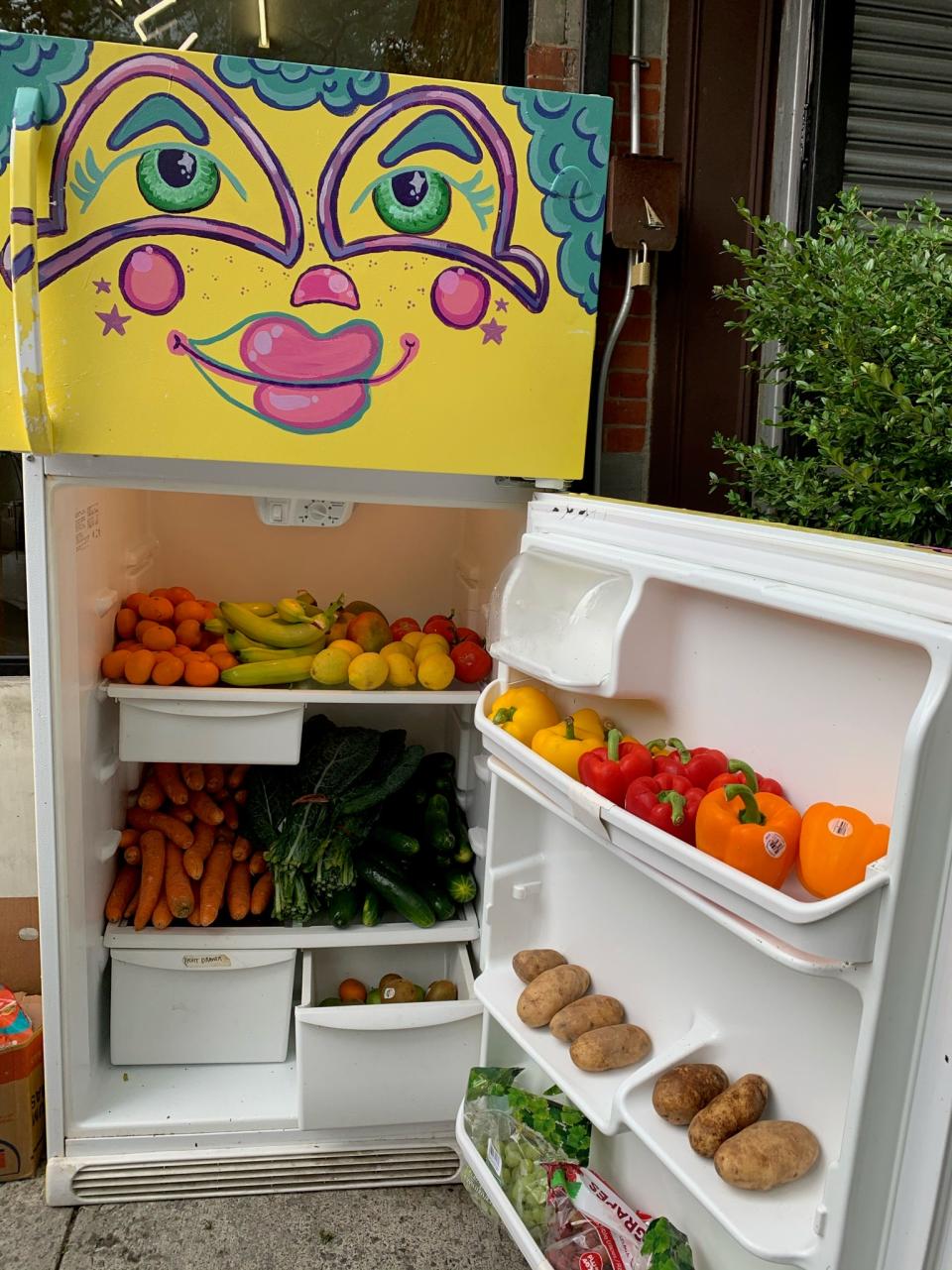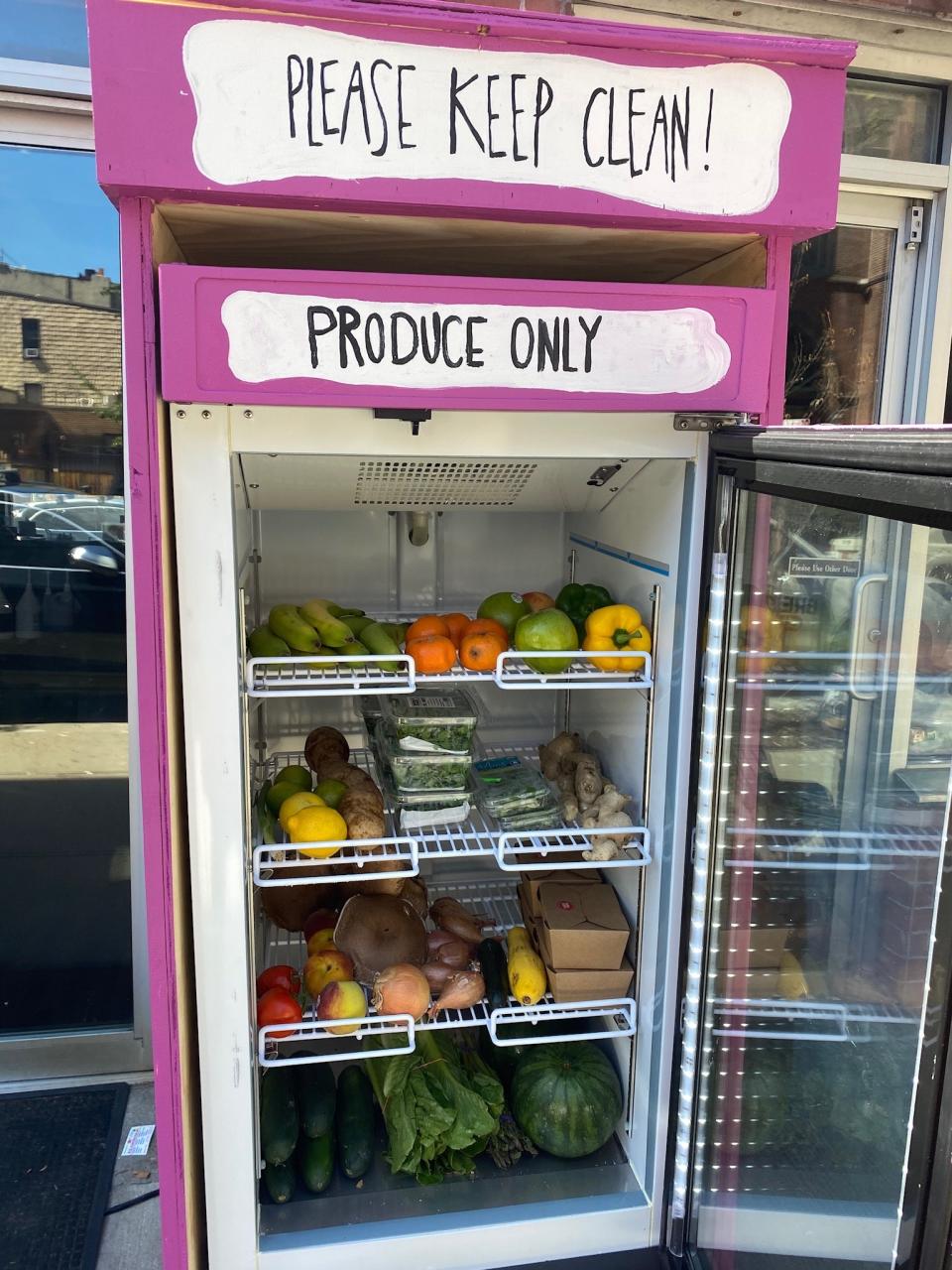How Playground Coffee Shop Pivoted to Mutual Aid During the Pandemic
For Zenat Begum, the owner of Playground Coffee Shop in Brooklyn, New York, the revolution has looked a lot different than she imagined it would. Begum opened Playground in 2016 as a coffee shop, but very quickly expanded to fit the surrounding community's needs. Born and raised in Brooklyn, Begum studied economics at The New School in New York City, and thought that was the path she was meant to set out on. Especially for Black and Brown people, she says, this was an ideal vision of success.
It wasn't until she was exposed to Occupy Wall Street in 2011 — along with the first emergence of Black Lives Matter protests in 2013 and a summer in Hong Kong in which she witnessed the 2014 uprisings — that she began to think about what her involvement in resilience and the movement could look like. Shortly after returning from being abroad, she joined 8 Ball Collective, a community of artists and thinkers who shared a goal of collaborating while giving back to the community around them. "You know, [I'm] thinking about artists, practices, and the relationship that we have with others — our peers — and how to keep each other safe," she says. "[8 Ball] is where I learned a lot of that and how to really cultivate a community...what it means to actually have each other's backs and create a support system."
Based in Bedford-Stuyvesant, Brooklyn the shop isn’t just a place to grab some coffee (though you can do that too). It's also a bookstore and a place for workshops, fairs, food drives, a radio station, and other amazing things to flourish. "Playground started becoming this larger idea...but it was hard for my community to merge with the current [one] that exists in Bed-Stuy," she says. As gentrification has increased throughout Brooklyn, it's common to see folks born and raised in these areas being displaced due to lack of resources and rent increases. Those who can manage to stay often find themselves competing with newcomers for the same resources. For Begum, centering the needs of members of both the old and new communities in one space was important.
"As organizers, [people of color] don't get credit for what we do because people think we are inadequate. And as a woman, people don't take me seriously, period."
With this concept of exchanging ideas and values in mind, as well as responding to the physical need of the community, Begum opened a part of Playground called The Annex in 2018, which focused on housing books from Black, Indigenous, Brown, Queer, and other authors of color. The company later added Playground Eats, a program that allows them to offer meals priced on a sliding scale using food donations they receive in the community fridge that sits on the sidewalk outside the store. Begum says she didn’t have an opportunity to be creative as a child, so Playground allows her to channel her inner child every day. She says it gave her an opportunity to think about how she wanted to be held in her community: "Mutual aid is such an interesting phenomenon where we're thinking about who gets taken care of and [how] the caretakers get taken care of," she says. "There's this reciprocity system."
Mutual aid has arguably become increasingly necessary during the COVID-19 pandemic. Many people who found themselves out of work, disabled, disenfranchised, or sick have been forced to rely on the community more than ever. "Mutual aid is important because anytime you need it, we’ll pull [through] for you, and provide for you," Begum says. Begum knows that she never has to prove her credentials for her community because everyone simply trusts each other. She acknowledges that without them, she wouldn't have gotten through this year.

After the COVID-19 pandemic hit New York City in March 2020, Begum pivoted several times, feeling that she had an obligation to step up and help her community, rather than shut the shop down and stay home. When the physical bookstore at Playground had to close due to the city's restrictions, Begum and her staff created a take one leave one library. In June 2020, when the BLM protests began, they put together kits for protestors that contained masks, snacks, water, and even a solution to clear your eyes from tear gas. They were doing over 40 dispatches a day, by car, by bike, or on foot.
As for Playground Eats, they continued to offer sliding scale meals, as well as expanding to four community fridges in their network, and in the fall, began the initiative to create a greenhouse outside of their brick and mortar establishment. "So many small businesses have closed down, and they haven't had the privilege to pivot," she says, acknowledging that she was lucky not to be limited by losing the ability to operate indoors. "We [couldn't] be inside the store anymore, so what do we do inside?" During the holidays, Playground also participated in a 'Power to the People' essentials drive as one of five outdoor drop-off locations which provided boxes of food, coats, books, and wellness items for Black, Indigenous, and other people of color in Bed-Stuy.
"As organizers, [people of color] don't get credit for what we do because people think we are inadequate," she says, "And as a woman, people don't take me seriously, period." Begum expresses frustration in how often she feels she has to minimize parts of her life in order to get recognition for the work she does. "I can't give too much away about my oppression, because then they think that I'm just looking for a handout. I don't give a fuck anymore what [they] think. What's a handout from your government when your government doesn't care about you?" she says.


Seeing how something as simple as a community fridge has gained popularity all over the country is an important reminder of the power we as individuals have, and the impact that we can make on our community. "One of my favorite people, who is no longer on this earth, is Hattie Carthan," Begum says. "She is a woman who is single-handedly responsible for us having community block associations and trees planted all throughout New York City — and she's from Bed-Stuy." Thinking about legacy, she also reminisces on the Black Panther Party and their contribution to the food program in public school that allows children from all over the city to eat for free. Begum notes that all the people we are trying to change the world for, we might never get to meet, but that we hope they will never have to see these problems. "I think about all the people who came before me who were just doing things and not thinking about impact," Begum says. "All the people that we're going to try to change the world for are not going to be people we ever meet…[but I hope that] they don't have to have [these same] problems."
The biggest takeaway from the revolution is that we all have something to contribute, and community is key. "Let's amplify each other," Begum insists. She knows that working together is important and there is truly strength in numbers: "That's why protests matter. Imagine having a protest with one person? It doesn't work like that, and that’s why these movements are so emotional. It's large bodies of people moving together in unison." As for the future for Playground, Begum wants to make sure her community is taken care of, financially. "I definitely get so emotional thinking about all the things that we've done this year, but I am just so proud of us. I feel like we are truly changing the world for the better, and you know, throw something else at us. Try us."
To support Playground Coffee Shop, its staff, and help them continue to serve the community, click here.
Zenat Begum's headshot by Julian Camilo.
Read more:
Bridgett Floyd on Life Since Her Brother George Floyd's Death
My Tattoos Have Helped Me Come to Terms With My Disability
Objectifying Asian Women as "Exotic" Puts Us in Danger
Watch one chef's entire daily routine:
Angelina Ruiz is a Nuyorican writer and artist, currently living in Puerto Rico. You can follow her on Instagram. Check out her newest project, The Radical Database, a website dedicated to anti-racist resources.
Originally Appeared on Allure

